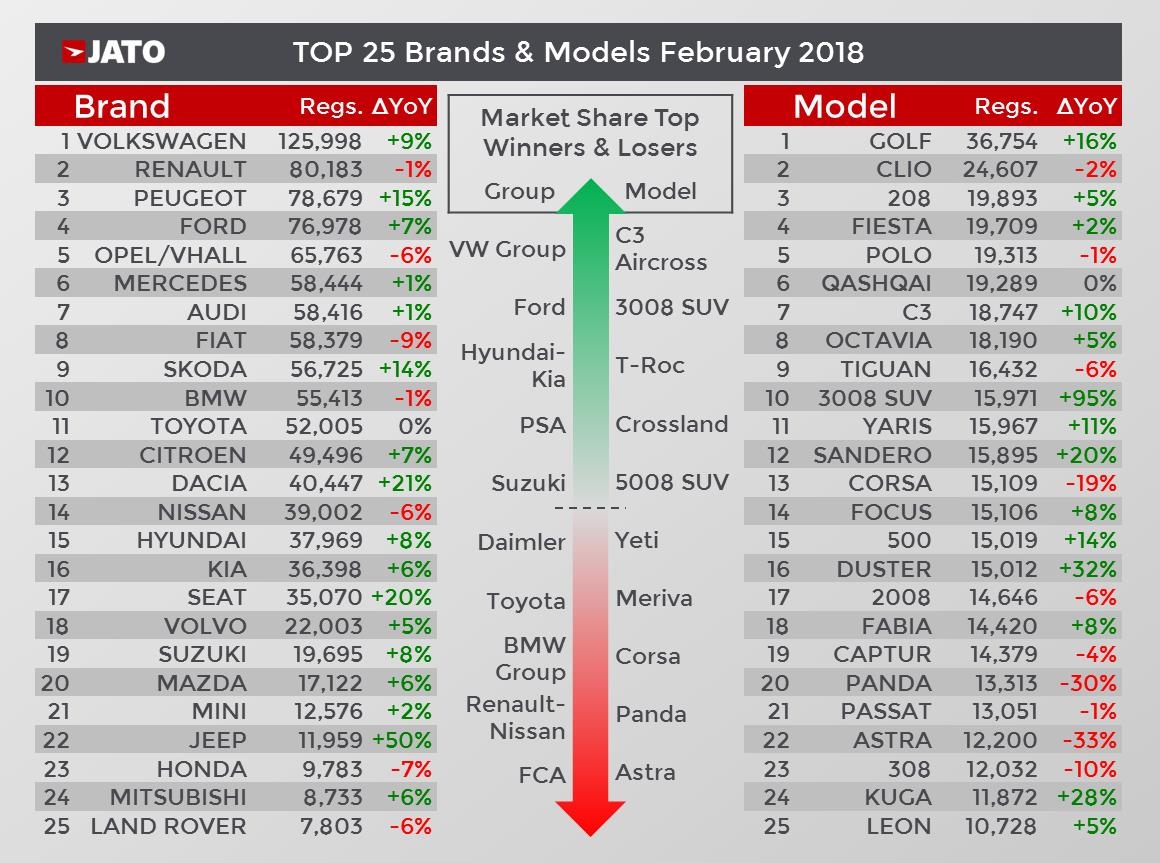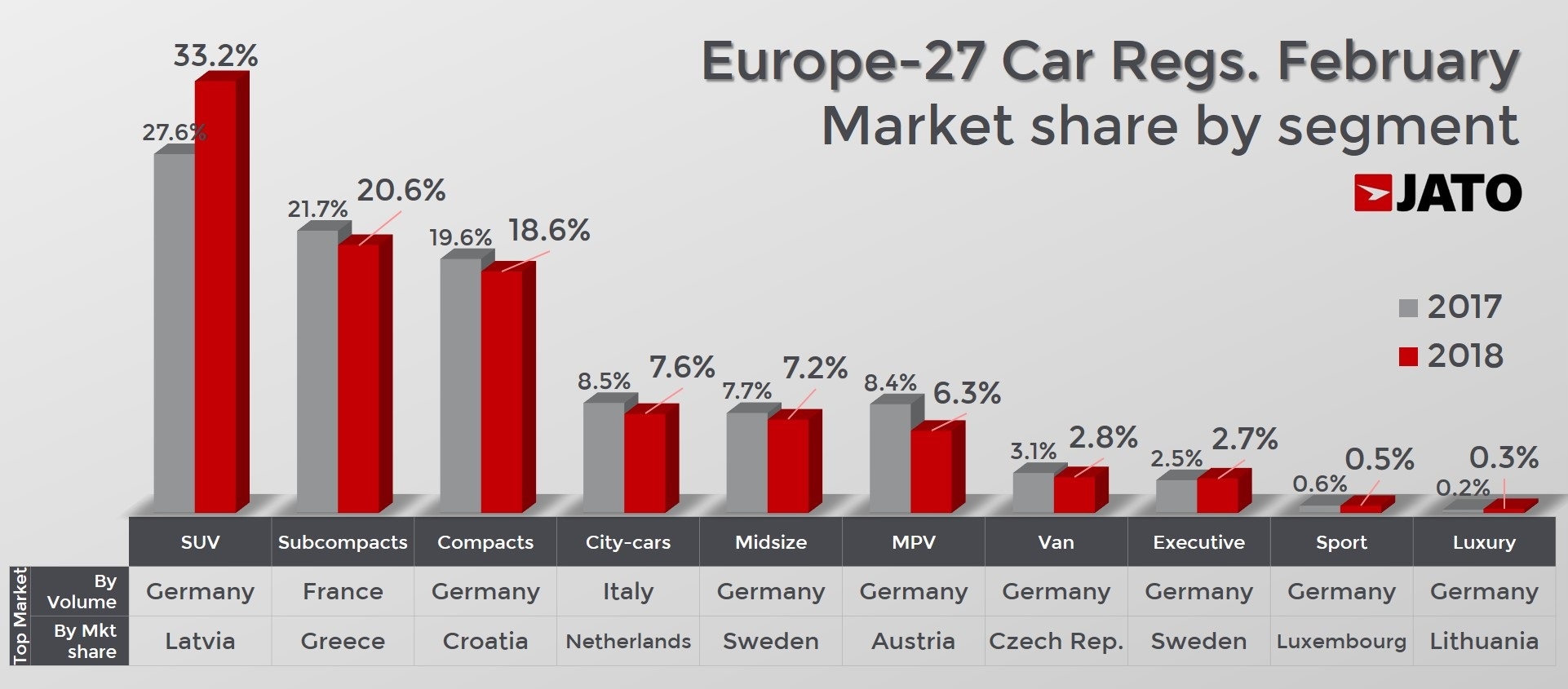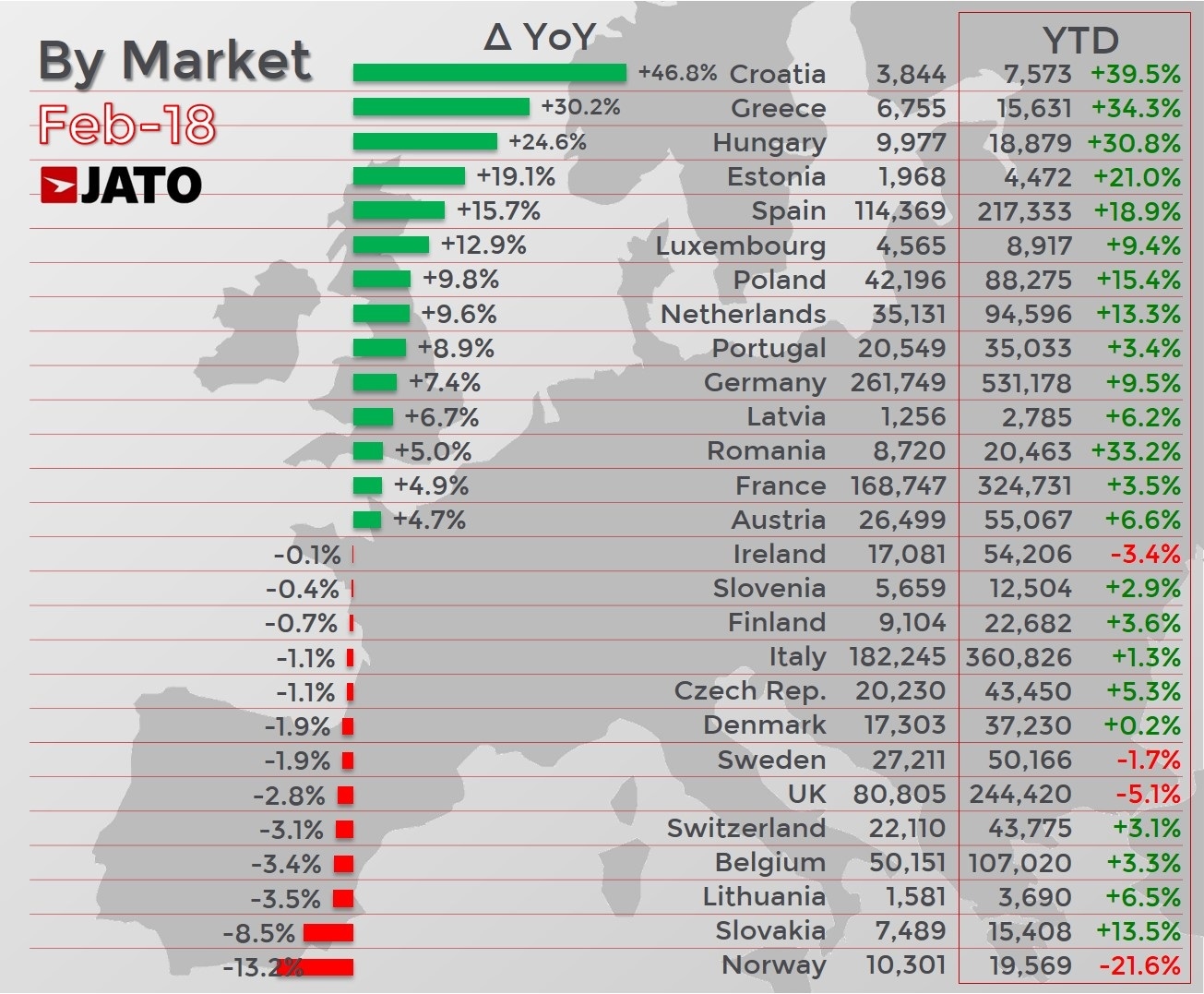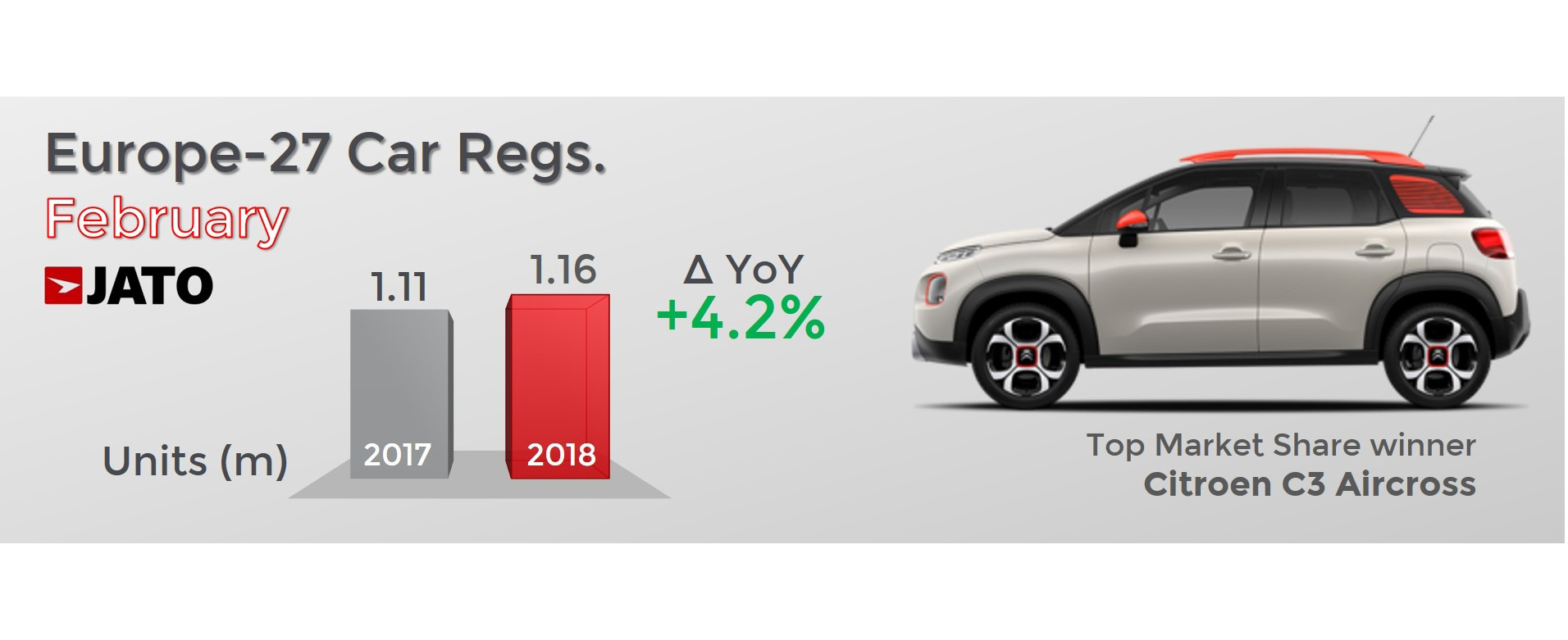The automotive industry continues to be in good shape for 2018, as volume went up by 4.2% last month with 1.16 million cars registered, some 50,000 more than in February of 2017. This was also the best February since 2008, when 1.19 million cars were registered.
Aside from key markets such as Germany, Spain and France, it was Croatia, Greece, Hungary and Estonia that registered the biggest double digit growths, with SUVs accounting for 33% of the total market last month.
“This increase in volume for February is very encouraging and follows strong results for January, indicating that the European car industry could continue to grow in the coming months. However, 13 of Europe’s 27 markets posted declines in February, so future growth for the industry could become dependent on a select few markets,” stated JATO global analyst Felipe Munoz.
“Diesel continues to decline and its market share fell to 39.5%, with volume falling by a significant 12.8 percentage points in February. This was largely caused by falling demand in Germany and the UK, where diesel vehicle registrations decreased by 19.2% and 23.5% respectively. Demand for petrol is continuing to grow as diesel declines, and petrol registrations increased by 16% in February. Alternative-Fuelled-Vehicles were also able to take advantage of the decline of diesel, growing by 18.5%.”
SUVs weren’t the only segment that saw a spike in registrations compared to the same period, last year. Both executive as well as luxury cars also saw a small increase.
When you add it all together, it’s the VW Group that reigns supreme, with Volkswagen holding onto last month’s top spot, followed by Renault, Peugeot, Ford and Opel/Vauxhall. As for the most popular model, that would be the Golf, which increased its volume by 16%.
Meanwhile, the Peugeot 3008, 5008, Citroen C3 Aircross, Opel Crossland and Grandland all contributed to PSA’s increased market share.
As for the biggest decline in market share, that would have to be FCA, due to decreasing demand for its Fiat and Lancia brands.








